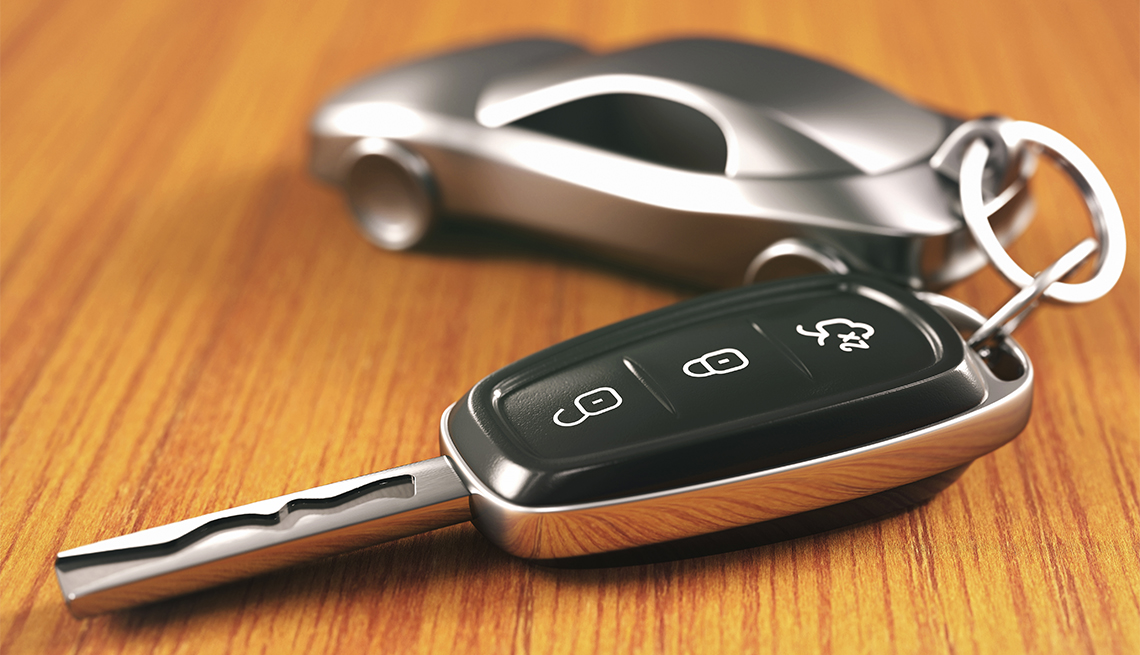Modern vehicles rely heavily on technology for convenience and security, and one of the most critical components of this system is the auto key. Gone are the days when car keys simply turned a mechanical lock. Today’s keys are sophisticated devices embedded with transponders, chips, and communication protocols that interact directly with your car’s onboard computer. While these advances have made vehicles safer and more convenient, they also mean that problems with your auto key may not be as easy to diagnose as before.
One common issue that arises with modern keys is the need for reprogramming. Whether due to a technical glitch, battery change, or a security update, reprogramming your auto key might be necessary to restore full functionality. In this article, we’ll explore the top signs that your auto key may need reprogramming and what steps you can take to fix the problem.
1. Your Car Doesn’t Recognize the Key
One of the clearest signs that your auto key needs reprogramming is when your car fails to recognize it. This often happens without any warning—one day your key works fine, and the next day, the vehicle won’t respond when you press the unlock button or try to start the engine.
Modern vehicles use RFID (Radio-Frequency Identification) chips in the key to communicate with the ignition system. If the code in your key doesn’t match the one stored in your car’s computer, the vehicle simply won’t respond. Reprogramming the key can restore this vital connection.
2. Intermittent Functionality
If your auto key works only occasionally—sometimes unlocking the doors or starting the engine, and other times doing nothing—it could be a sign that the key’s programming is failing. This issue is often mistaken for a low battery in the key fob, but if changing the battery doesn’t fix the problem, it may point to the need for reprogramming.
Intermittent functionality might also indicate internal damage to the key’s circuitry. A professional automotive locksmith or dealership can diagnose whether the issue lies in the hardware or the programming.
3. Remote Buttons Stop Working
Many auto keys come with buttons for remote locking, unlocking, trunk release, and even remote start. When these functions stop working, the first assumption is usually a dead battery in the key fob. However, if replacing the battery doesn’t resolve the issue, the problem may lie in the key’s programming.
Over time, or after a battery replacement, the synchronization between the auto key and the vehicle may be lost. Reprogramming the key restores this link and enables remote functions again.
4. Dashboard Warning Lights or Error Messages
Some modern cars display specific error messages on the dashboard when there’s a problem with the key. Messages such as “Key Not Detected,” “Invalid Key,” or “No Key Present” are red flags that your vehicle is not communicating with your auto key properly.
These warnings may not always be consistent, but when they do appear, they usually point to either a malfunction in the key’s transponder or an issue with the vehicle’s key recognition system—both of which can often be resolved by reprogramming.
5. You’ve Recently Had Electrical Work Done on Your Car
If you’ve recently had your car battery replaced, undergone electrical repairs, or even had your onboard computer reset, there’s a chance your auto key may need reprogramming. In some vehicles, electrical resets can erase the stored memory of key codes, leading to a breakdown in communication between the key and the car.
In such cases, the car may not start or respond to your auto key until it has been reprogrammed to recognize the key again.
6. You’ve Purchased a New or Replacement Key
Any new key—whether it’s a spare or a replacement—typically needs to be programmed before it can be used. This is especially true for transponder keys and smart key fobs. A blank key without the proper programming will not start your car, even if it fits in the ignition.
In this scenario, reprogramming isn’t just a fix—it’s a requirement. Some vehicles allow DIY programming if you already have a working key, but others will require a professional to use a diagnostic tool to register the new auto key.
7. You’ve Experienced a Security Breach or Theft Attempt
If your car has been tampered with or if you’ve lost your auto key in a situation where it may have been stolen, it’s essential to reprogram your remaining keys. This prevents unauthorized access and ensures that only the reprogrammed keys will work with your vehicle.
Reprogramming in this case is a security measure, allowing you to invalidate the lost or stolen key and maintain control over who can access your car.
What to Do If You Suspect Your Auto Key Needs Reprogramming
Step 1: Check the Battery
Before assuming the worst, always check the battery in your key fob. A weak or dead battery can mimic many of the symptoms listed above.
Step 2: Try a Spare Key
If you have a spare auto key, try using it to see if the issue persists. If the spare works flawlessly, your original key may need reprogramming.
Step 3: Visit a Professional
Contact a certified automotive locksmith or your car dealership. They can perform diagnostics to confirm whether your key requires reprogramming and handle the process with the necessary tools.
Step 4: Prevent Future Issues
Store keys safely, avoid dropping them or exposing them to moisture, and replace batteries proactively to minimize the risk of programming failure.
Final Thoughts
Your auto key is much more than a simple tool for starting your vehicle—it’s an integral part of your car’s security and operation system. When it stops working as expected, the issue may lie not in physical damage or battery life, but in the programming.
